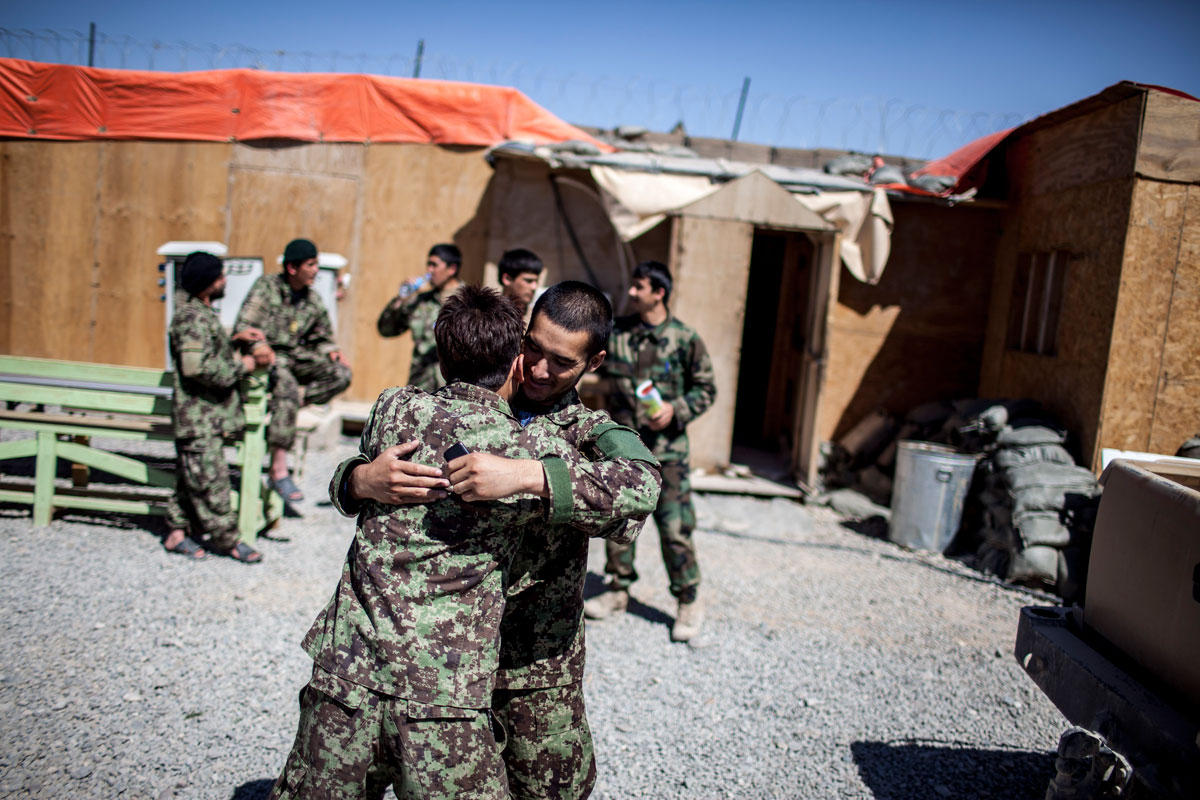
KABUL -- USIP is working with an Afghan NGO that produces weekly radio programs that aim to educate millions of Afghans in social issues and dispute resolution.
USIP supports the Kabul-based Afghan Education Production Organization, or AEPO, which makes the popular BBC radio drama “New Home, New Life,” as well as other radio shows that feature a spectrum of problem-solving skills for Afghans.
Television and Internet dominate larger cities, like Kabul and Kandahar. But in rural Afghanistan, radio programming remains one of the most effective ways to reach an isolated population with messages of conflict resolution and transition. And AEPO is using radio soap operas and other programming to reach through this “information darkness,” as USIP’s Michael Dwyer terms it, to Afghan people about health, governance, rule of law, corruption, elections, violence and conflict.
“We provide educational programming with strong social messages to help Afghan people to improve their life,” says Asif Omar, director of AEPO, which receives funding from USIP for a one-year program.
The soap opera, “New Home, New Life,” was begun by the BBC in Afghanistan in 1994 and has become a fixture on Afghan radio. It features people in two fictional villages, “Upper Village” and “Lower Village,” and a number of recurring characters to point up the kinds of problems real people living in the country face. The serial storyline allows the show’s producers to drive messages home.
“Rural Afghans need to be part of the national civil dialogue about the future of Afghanistan,” says Dwyer – a senior program officer at the Institute specializing in media in conflict zones. “if the peace and transition process doesn’t have buy-in from rural Afghans, you can guess how successful it is likely to be.”
Connecting urban and rural Afghans is also critical, he says.
One example of how much impact “New Home, New Life” has had over the years is after one storyline about widows was broadcast. So striking was the theme that Taliban leader Mullah Omar released a decree giving widows more rights after an episode of the program was aired, says Omar.
“It is maybe the only media program that has listeners in government, in the Taliban – all Afghans,” he says.
The show covers everything from mine awareness to women’s issues to civic education and health. But it also incorporates messages on how to resolve conflict and how to defuse disagreements before they become violent.
The show’s content reflects the range of donors from which AEPO receives funding, to include storylines on how to resolve disputes. One recent program showed how tribes in one fictional village worked through a land dispute with another tribe in a neighboring village.
The BBC’s approach is to use various programs to reinforce the learning experience. So for example, a theme in a radio drama will also be the subject of a call-in program. That’s one of the reasons it makes sense for USIP to support such work.
“USIP brings thematic expertise that supplements the research and production expertise of the BBC/AEPO,” Dwyer says.
The program’s scripts are based on research a team of four – two men and two women – who routinely visit rural villages in Afghanistan to ask people about their problems, then compose scripts that reflect those problems.
The program maintains strict impartiality – it shies away from issues relating to the Taliban, for example – but over the course of one storyline unfolding over the course of weeks and weeks, listeners learn to think for themselves about how to face challenges.
A majority of Afghans live in the rural parts of the country and BBC estimates that “New Home, New Life” has had an audience of up to 11 million people here. The programs are produced by as many as 80 actors who act in Dari and Pashto. Other programs USIP supports is one for children aged five to nine called “Peddler’s Bag,” and another for teens, “Castle of A Thousand Windows.” Each of the educational programs is funded in part by USIP and all are broadcast in both Dari and Pashto.
“We aim our programs to people who are illiterate, who are very far from cities and so we can make our programs simple to understand,” Omar says.
Watch Asif Omar talk about AEPO's work:
AEPO Project Officer Ahmad Farid Sultani talks in the organization's production studio about radio programming supported by USIP, that helps build understanding of rule of law and other issues among the rural Afghan public:



